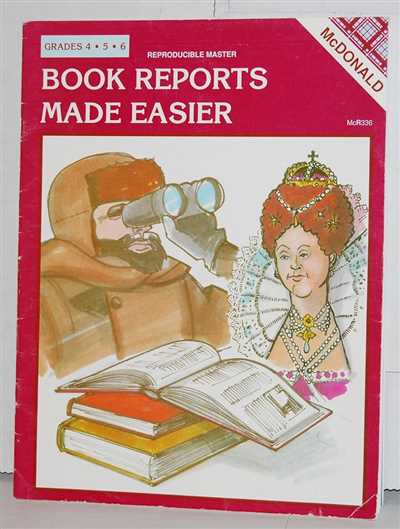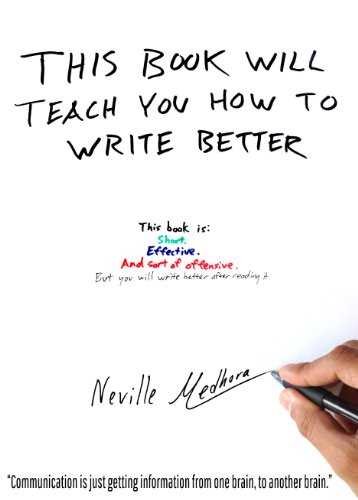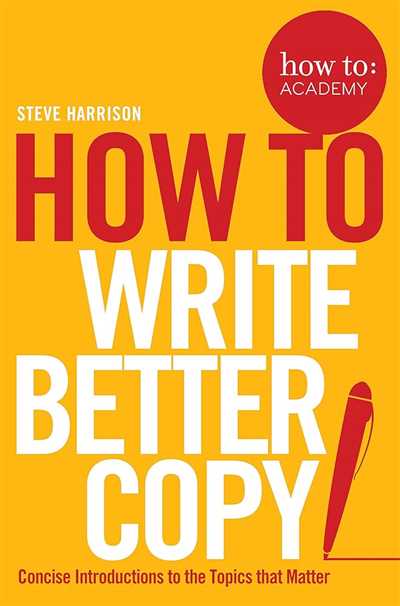
Writing a book is a challenging task that requires skill, creativity, and dedication. Whether you’re an aspiring writer or a seasoned author, engaging your readers is crucial. A well-written book not only gives readers a satisfying reading experience but also makes them subconsciously absorbed into the world you’ve created. In this brief guide, you will find 10 tips that will help you improve your writing and establish yourself as a great writer.
First and foremost, clarity is key when it comes to writing. Your book should have a clear and concise description that helps potential buyers understand what’s in store for them. A good book description is both enticing and informative, giving readers a glimpse into the world you’ve written. Remember, a reader picks up a book because they want to be transported somewhere else, so make sure your description grabs their attention and makes them want to delve into your piece of literary work.
In addition to a clear book description, having a well-established setting and compelling characters is essential. Readers need to connect with someone or something in your book, so take the time to develop your characters and make them relatable. A good writer knows that their characters are the heart of their story, and creating captivating and three-dimensional characters is a crucial step in writing a successful book.
Another important aspect to consider is grammar and punctuation. While it may not be the most exciting part of writing, good grammar makes a huge impact on the quality of your writing. Poor grammar and punctuation can be distracting for readers and can take away from the overall enjoyment of your book. So, take the time to proofread and edit your work, or consider hiring a professional editor to help you polish your words to perfection.
When it comes to writing novels or any type of book, pacing is key. Too much description can slow down the story and bore your readers, while too little might leave them feeling lost. Finding the right balance between descriptive passages and action is crucial for keeping your readers engaged. A good writer knows when to add in just enough description to paint a vivid picture in the reader’s mind without overwhelming them with unnecessary details.
Finally, one of the most important things to remember is to write for yourself. Don’t try to write what you think someone else wants to read. Write the story that you would want to read, because if you’re not passionate about your own work, no one else will be either. Writing is a personal journey, and the best books are often those that come straight from the heart.
In conclusion, writing a good book is a challenging yet highly rewarding task. By following the tips outlined here, you can improve your writing skills and create books that will captivate and satisfy your readers. Remember to engage your readers, establish a clear and captivating setting, develop well-rounded characters, pay attention to grammar and punctuation, find the right balance between description and action, and most importantly, write for yourself. With these ingredients, you’re well on your way to becoming a great writer.
Writing a good book: 10 ingredients of great novels
Writing a good book is not an easy task. It requires time, effort, and a clear understanding of what makes a book engaging and satisfying for the reader. To help you in your writing journey, here are 10 essential ingredients that can turn your book into a great novel:
- Starts with a clear goal: A good book starts with a clear purpose or goal in mind. Knowing what you want to achieve with your writing will help you establish a solid foundation for your story.
- Engaging characters: Characters are the heart of any story. Having well-developed and relatable characters will help readers to connect with your book on a deeper level.
- Compelling plot: A great novel needs a captivating plot that will grab the reader’s attention from the very beginning and keep them hooked until the end.
- Effective descriptions: Descriptions play a crucial role in creating a vivid and immersive experience for the reader. Well-written descriptions can transport readers into the world of your book.
- Strong writing: Good grammar and proper use of language are essential for any writer. Having a solid command of the English language will help convey your ideas effectively.
- Emotional impact: Great novels evoke emotions in the readers. Whether it’s joy, sadness, fear, or excitement, the ability to make readers feel something is a sign of a successful book.
- Well-paced: A good book keeps readers engaged throughout. Balancing action, dialogue, and introspection is important to maintain a pace that will keep readers turning the pages.
- Clear theme: Having a clear theme or message in your book will add depth and meaning to your story. It helps readers connect with the underlying ideas and concepts.
- A satisfying ending: A great novel provides a sense of closure and satisfaction to the reader. Wrapping up loose ends and leaving readers with a lasting impression is crucial.
- Subconsciously absorbing: When readers finish a great novel, they don’t just close the book and move on. The story stays with them, and they find themselves thinking about it long after they’ve finished reading. Aim to create a book that lingers in the minds of your readers.
Having these ingredients in your book will greatly increase its chances of being highly regarded by readers and buyers alike. Remember, writing a good book takes time and effort, but with the help of these 10 ingredients, you can create a novel that will have a lasting impact on your audience.
Get a Clear Brief
When it comes to writing a book, one of the most important things you can do for yourself is to get a clear brief. This is a description that outlines what your book is about, who your target audience is, and what you hope to achieve with your writing. Having a clear brief gives you a guide for your writing and helps you stay focused on the goals you have set for yourself.
For many writers, the brief is something that is developed subconsciously. You may have a vague idea of what you want to write about, but unless you have a clear brief, it can be easy to get off track and find yourself writing about something completely different. A clear brief helps you establish the direction of your book and ensures that your writing stays true to your original intentions.
Not only does a clear brief help you as a writer, but it also helps your readers. When readers are looking to buy a book, they often read the description to get an idea of what the book is about. A good brief will give potential buyers a clear understanding of what to expect from your book, which can help them make an informed decision about whether or not to buy it.
Having a clear brief is especially important for students of writing. When you’re starting out, having a clear brief can help you focus your writing and ensure that you’re meeting the requirements of your assignments. It can also help you develop good grammar and writing skills, as you have a clear goal to work towards.
So, how do you get a clear brief? Well, for starters, you need to have a clear idea of what your book is about. What’s the main theme or message you want to convey? What impact do you want your book to have on readers? Once you have answered these questions, you can start to establish a clear brief.
A clear brief should be concise and engaging. It should give potential readers a taste of what they can expect from your book, without giving away too much. A good brief will leave readers wanting more and make them eager to dive into your book.
When writing your brief, it’s important to think about what makes your book unique. What sets it apart from others in its genre? Highlighting these unique qualities can help attract potential readers and make your book stand out from the crowd.
Remember, your brief is not just for others – it’s also for you. It helps you stay on track and ensures that your writing remains focused and satisfying. So, take the time to develop a clear brief for your book and see how it impacts both your writing and your readers.
Having a clear brief is like having a road map for your book. It helps you navigate the writing process and ensures you’re taking the right path towards creating a successful and engaging piece of work. So, if you’re unsure where to start when it comes to writing your book, start with a clear brief – it will guide you on your journey and make the writing process much smoother and more enjoyable.
Writing for Someone Else

When you write a book, it’s important to consider your audience. Writing for someone else means putting yourself in their shoes and understanding what they want to read. Whether you’re writing a novel, a self-help guide, or a piece of non-fiction, engaging your readers is key to both their satisfaction and your success.
Here are 10 tips to help you write for someone else:
| 1. | Know your audience: Before you start writing, think about who will be reading your book. Consider their age, interests, and reading level. Knowing your audience will help you establish the tone and style of your writing. |
| 2. | Make it engaging: No matter the genre, a good book should be engaging from start to finish. Add suspense, intrigue, or captivate the reader with interesting characters and plot twists. |
| 3. | Keep it concise: Unless you’re writing an epic novel, keep your descriptions and explanations brief. Too much unnecessary detail can bore your reader. |
| 4. | Use proper grammar: Having good grammar is essential when writing for someone else. Poor grammar can distract the reader and make your book less enjoyable to read. |
| 5. | Show, don’t tell: Instead of telling the reader something, show it through vivid descriptions and well-crafted scenes. This helps the reader to visualize and engage with your story. |
| 6. | Grab their attention: The first few pages of your book are crucial. Start with a captivating hook that grabs the reader’s attention and makes them want to keep reading. |
| 7. | Have a clear purpose: Before you start writing, know what your book is about and what impact you want it to have on the reader. This will help you stay focused and ensure that your message comes across clearly. |
| 8. | Write what’s popular: If you want your book to sell, consider writing in a popular genre or about a popular topic. Do market research to find out what readers are currently interested in. |
| 9. | Get feedback: Don’t be afraid to ask others, such as beta readers or writing groups, for their opinion on your work. Constructive criticism can help you improve and make your book more appealing to others. |
| 10. | Enjoy the process: Writing for someone else can be highly satisfying. Remember to enjoy the journey and take pleasure in knowing that your words will be absorbed by others and have an impact on their lives. |
By following these tips, you can create a book that not only satisfies your readers but also gives you a sense of accomplishment as a writer. So, start writing for someone else and see how much joy and pleasure it brings.
Writing for Yourself

When it comes to writing, one of the most important things you can do is write for yourself. While it’s true that many writers strive to have their work read and enjoyed by others, the first person you should always be writing for is yourself. Writing for yourself means focusing on your own satisfaction and enjoyment, rather than trying to please someone else.
When you write for yourself, you have the freedom to explore your own interests and ideas without the pressure of catering to someone else’s tastes. You can experiment with different genres, styles, and themes, and you can take risks that you might not feel comfortable taking if you were writing for someone else. This freedom can lead to more unique and satisfying books.
Writing for yourself also helps you establish your own voice as a writer. By focusing on what you enjoy and what interests you, you can develop a distinctive style and tone that sets your writing apart from others. This can make your work more engaging and memorable for readers.
When you write for yourself, you can also more easily tap into your own life experiences and emotions. By drawing on your own personal stories and feelings, you can add depth and authenticity to your writing. This can make your work more relatable and impactful for readers.
Another benefit of writing for yourself is that it allows you to improve your writing skills. When you write for your own pleasure, you can focus on honing your craft and experimenting with different techniques. You can take the time to revise and edit your work, and you can learn from your mistakes. This constant practice and improvement will make you a better writer overall.
Writing for yourself doesn’t mean that you should ignore your potential readers altogether. It just means that you should always prioritize your own enjoyment and satisfaction as a writer. When you write something that you find engaging and fulfilling, chances are others will feel the same way. So, focus on writing the best book you can for yourself, and trust that others will appreciate and enjoy it too.
Remember, writing is a personal and creative journey. So, don’t be afraid to trust your instincts and write what feels right to you. Embrace the process of writing for yourself, and let your passion and love for the craft guide you. Happy writing!
How Reading Will Help Your Writing and Add Pleasure to Your Life
When it comes to writing a great book, one of the most important things you can do is read. Reading not only helps to improve your writing skills but also adds pleasure to your life. Whether you’re a writer looking for inspiration or someone who simply enjoys a good book, reading has a profound impact on both your writing and your overall well-being.
Reading helps writers to absorb different writing styles, grammar, and word usage. When you read, you subconsciously establish a mental guide for how a well-written piece should look and sound. You start to recognize what works and what doesn’t work in a book, and this knowledge can be applied to your own writing.
Reading also gives you insight into how to engage readers. Whether you’re writing fiction or non-fiction, the goal is to captivate your audience and keep them interested throughout the book. By reading engaging novels and books written by others, you can learn what makes a story compelling and apply those techniques to your own writing.
Furthermore, reading helps to improve your descriptive abilities. Descriptions are a crucial part of painting a clear picture for readers, and by studying how other writers describe settings, characters, and events, you can enhance your own descriptive skills and create more vivid and engaging scenes in your writing.
Another benefit of reading is that it helps with the flow and structure of your writing. When you read well-written books, you can see how the author transitions smoothly from one idea to another and how the story unfolds logically and coherently. This understanding of structure adds clarity and coherence to your own writing, making it easier for readers to follow along.
Reading also expands your vocabulary and improves your grammar. When you expose yourself to a wide range of books, you come across new words and phrases that you can incorporate into your writing. Additionally, by seeing how sentences are constructed and how grammar rules are applied, you can enhance your own writing skills and avoid common grammatical errors.
Not only does reading help you become a better writer, but it also adds pleasure to your life. Reading is a form of entertainment that allows you to escape into different worlds, travel to new places, and meet interesting characters. It provides a source of relaxation and enjoyment, giving you a break from the stresses of everyday life.
So, whether you’re a writer or not, picking up a book and diving into its pages can greatly enrich your life. The benefits of reading are numerous, including helping you become a better writer, expanding your knowledge and understanding, and providing you with moments of pleasure and escape. So, if you’re not already an avid reader, it’s time to start!
| 10 Tips for Engaging Reads |
|---|
| 1. Start with something you’re interested in or curious about. |
| 2. Look for books that have received high ratings and positive reviews from other readers. |
| 3. Read the book description to get a clear idea of what’s it about. |
| 4. Check if the book is part of a popular series or written by a well-established author. |
| 5. Read a brief excerpt or sample chapter to see if the writing style resonates with you. |
| 6. Consider recommendations from friends, book clubs, or online communities. |
| 7. Don’t judge a book solely by its cover – give it a chance! |
| 8. Find a comfortable spot and set aside dedicated time for reading. |
| 9. Engage with the book by making annotations, highlighting passages, or discussing it with others. |
| 10. Don’t be afraid to put down a book if you’re not enjoying it – there are plenty of other great ones out there! |









